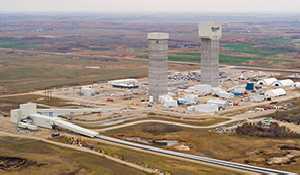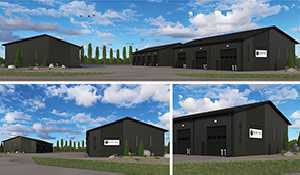Time for a serious rethink on Energy East Pipeline
August 15, 2018, 3:29 pm

Saudi Arabia has given the federal government the perfect opportunity to reopen discussion on the most important national infrastructure project that never happened in Canada.
With Saudi Arabia engaging in a full economic assault on Canada—selling Canadian investments and holdings in Canadian dollars, banning Canadian agricultural imports and telling Saudi citizens in higher education to leave Canada and return to Saudi Arabia—and then reassuring Canada that it will continue to sell us oil, this is the time to look again at a project that could solve several problems.
Energy East would provide an inexpensive, reliable way to get landlocked Western oil to market. It would solve the dependence of Eastern refineries on imported oil, it would open up a bottleneck restricting development in the Western Canadian oilfield, and it would reduce the discount at which Western Canadian crude is sold to American buyers because there are no other options.
Saudi Arabia has a “firm and long-standing policy” that petroleum supplies are not influenced by political considerations, Khalid al-Falih said in a statement meant to reassure Canadians that Saudi oil would continue to flow to Canadian ports.
“The current diplomatic crisis between Saudi Arabia and Canada will not, in any way, impact Saudi Aramco’s relations with its customers in Canada.”
But why in the world would Canada want to buy oil from a country that is trying to trash our economy, especially when we have oil in the ground in Western Canada that could easily meet Eastern Canadian needs, if only there was a way to get that energy east.
The Energy East Pipeline would be an incredible boost for the Canadian economy. Not only would it boost the energy industry in Western Canada, it would be a boon to Evraz, which specializes in producing pipe for pipelines, and it would mean a construction boom across the country.
We are seeing the impact of the Enbridge Line 3 expansion in our region. Imagine the impact of a new project across the country, from Alberta to New Brunswick.
The Moosomin region would benefit greatly from Energy East had it proceeded, as Moosomin was slated to be the onramp to Energy East for Bakken oil, with a feeder pipeline from Cromer, Man., another pipeline from Williston, North Dakota to the Moosomin Compressor Station, and a 1,050,000 barrel tank farm at the Moosomin Compressor Station.
Saudi Arabia is not a friend to Canada. Amnesty International has done a great job of profiling the growing list of injustices that plague the country.
Christia Freeland was responding to the detainment of Raif Badawi and the recent arrest of his sister Samar Badawi, along with several other women who have been jailed for pushing for more civil freedoms, including former Canadian student Loujain al Hathloul.
If Saudi Arabia doesn’t want to trade with Canada anymore, it’s an incredibly stupid move on their part in the long term. They purchased the former Canadian Wheat Board, now G3, specifically to assure themselves of a supply of grain.
The other thing the Saudis seem to want to buy from us is military equipment that has been used to help create the world’s worst humanitarian crisis and even used against civilians in Yemen.
Canada’s major import from Saudi Arabia is $2.2 billion worth of oil every year that goes to the Irving refinery in Saint John, New Brunswick—the very refinery that would have been the endpoint of the Energy East Pipeline.
The current dispute with Saudi Arabia is exactly the sort of reason why I and many others argued that Energy East is vitally important for Canada.
TransCanada backed away from Energy East after the federal government imposed ridiculous new rules taking into account downstream and upstream emissions from every drop of oil going through the pipe—emissions that are still there with every tanker of Saudi crude coming to Canada.
It’s time for the government to rethink its approach to Energy East.




































